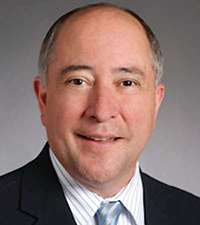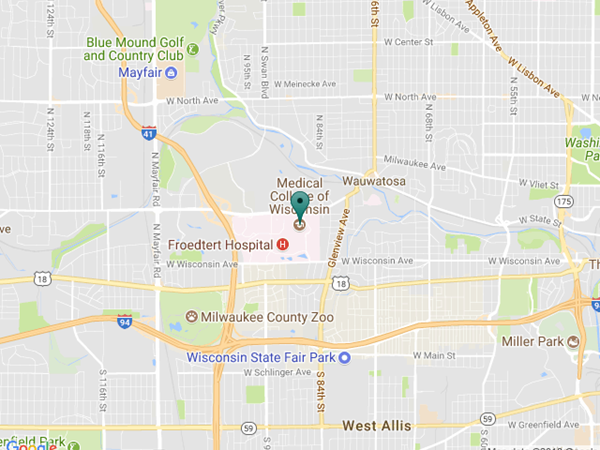Student and Resident Behavioral Health
Welcome! The Medical College of Wisconsin recognizes its students and residents work hard, long and responsibly. We are aware the demands of education training and service to patients can produce a variety of stressors for individuals and their families. Student and Resident Mental Health Services provides a comprehensive program to meet these professional and personal mental health needs. We value your dedication and hope you find these resources helpful.

Schedule an Appointment
MCW Student and Resident Behavioral Health Resources
Explore these topics for resources to address all facets of MCW student and resident wellness.
Early Alert Wellness Self-Monitoring Tool
Early Alert helps MCW students monitor their own wellness and identify support resources (within and outside of MCW) for any challenge they may face – sleep, academics, mood, friendships and more.
Early Alert is confidential and works through text messaging (no app download needed and students may unsubscribe at any time). Additionally, Early Alert includes wellness self-monitoring and one check-in per week.
(NOTE: Early Alert will not share any personal identifying information you provide, unless they believe that sharing the information will prevent you or someone else from being hurt and/or suffering significant hardship. If that happens, they will reach out to others who can help and will share the minimum amount of information needed.)
SilverCloud Mental Health Resource
SilverCloud is a free, digital mental health resource available to all MCW students. The program offers readings that focus on a variety of topics including anxiety, depression, stress, or insomnia. Each program can be customized to focus on topics relevant to you. This can include improving sleep, managing worries about the future, coping with grief, building self-esteem, and more. In addition to self-guided readings, you will receive regular check-ins from a Froedtert Health coach who checks in on your progress.
To get started, visit the SilverCloud website and use your @mcw.edu email to register or login to an existing account.
SilverCloud is a supportive tool, but its content is not intended to be a substitute for professional mental health advice, diagnosis or treatment. If you need specific advice or assistance, please contact your medical provider.
Awkward Silence Presents: Seize the Awkward
Having a conversation about mental health might be uncomfortable, but it can make all the difference.
View the Awkward Silence Presents: Seize the Awkward | Friendship & Mental Health | Ad Council video today!
Beat Stigma. Start the Conversation.
Do you have a hard time finding the right words when talking to someone who is struggling? Reference these helpful examples for your future conversations.
Stress and Depression Questionnaire
The Stress and Depression Questionnaire is a valuable tool to help you connect with resources if you are struggling with depression, suicidal thoughts or anxiety. It is completely anonymous, but at the same time interactive because a member of our clinic will respond to you. The instructions at the site will explain further.
Student and Resident Behavioral Health Director
David J. Cipriano, PhD

Associate Professor
Psychiatry and Behavioral Medicine
(414) 955-8954
Pager: (414) 314-5562
View list of Milwaukee-based Student Organizations
Contact Us/Crisis Support Lines
Milwaukee
General: (414) 955-8900
Intake Team
(414) 955-8933
studentresidentbh@mcw.edu
Emergencies
During Business Hours
(414) 955-8933
Emergencies
1 (833) 927-1860 ComPsych (students only)
After Business Hours
(414) 805-6700
Green Bay
Counseling services available in partnership with St. Norbert College
(920) 403-3045
Central Wisconsin
Counseling services available in partnership with Elmergreen and Associates
(715) 845-7175
24/7 Support - Provided by Resources Outside of MCW
Support available at no cost through the National Suicide Prevention Lifeline
(800) 273-8255
Suicide and Crisis Lifeline: 988
The Crisis Text Line
Provides Free Crisis Support via Text Message:
-Text START to 741741
-Additional information and support available on their website
Green Bay - Family Services of NE Wisconsin
Crisis Support Line
(920) 436-8888
Milwaukee County Behavioral Health Division
Crisis Support Line
(414) 257-7222
(414) 257-6300 (for hearing impaired)
Wausau - North Central Health Care
Crisis Hotline
(715) 845-4326
(800) 799-0122
The Trevor Project
LGBT Intervention and Suicide Prevention Hotline
(866) 488-7386
Physician Support Line
Psychiatrists helping physicians and medical students navigate the many intersections of our personal and professional lives.
(888) 409-0141
Physican Support Line website


